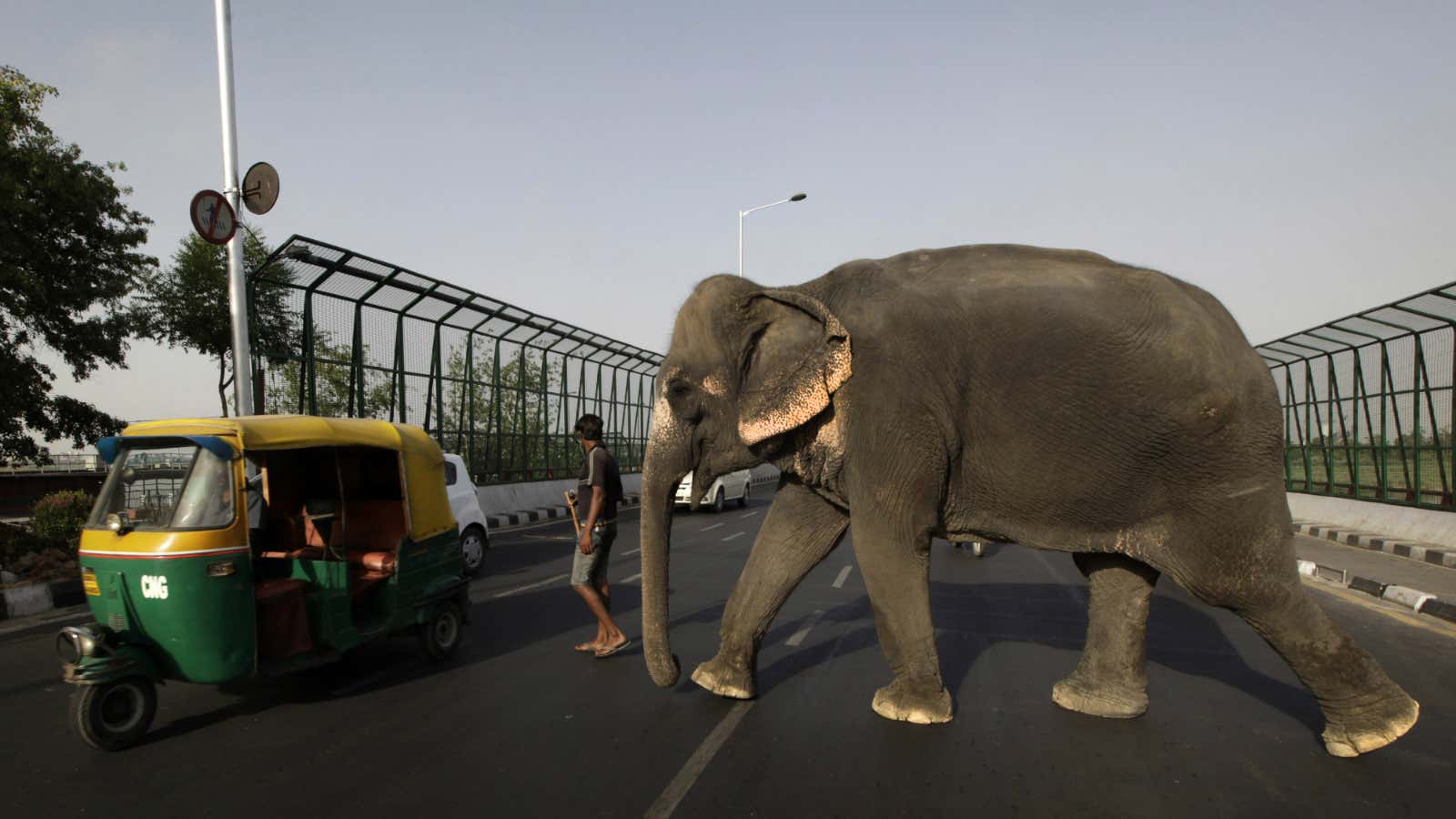It’s one thing trying to build driverless cars, and entirely another to make them work in Indian conditions.
With unruly pedestrians, disorderly drivers, reckless autorickshaws, a variety of slow-moving carts, darting dogs, and the occasional elephant, Indian roads are really something else. But there’s one company that apparently has the audacity to test driverless cars in India.
Tata Elxsi, a design firm part of the Tata group, is currently seeking permission from authorities in Bengaluru to road test an autonomous car, the Business Standard newspaper (paywall) has reported. Unlike some autonomous car companies, Tata Elxsi isn’t building a driverless car from scratch. Instead, it has repurposed two sedans, including one manufactured by Tata Motors, and rigged them up with a range of sensors and cameras. The kitted out cars are already being given a runaround at a facility on the outskirts of Bengaluru.
Quartz has reached out to Tata Elxsi for more details on the project, and will update this post if and when we hear back.
Tata Elxsi has been working on autonomous technology for some time now. In 2014, for instance, a group of engineers from the company modified a Tata Motors Zest sedan and tested it on a pre-determined route. “We knew the car’s electronics architecture (inside out). We made it autonomous and took it to Pune, and showed it to Tata Motors,” Tata Elxsi’s managing director, Madhukar Dev, told Fortune magazine last year. “About 100 technical staff took a ride in it along a programmed path.” In 2015, the company also demonstrated the autonomous valet parking technology developed by it at the CES, the world’s largest consumer technology trade show.
The objective is to build an autonomous car framework that combines cameras, sensors, and communications between vehicles and infrastructure, which could then be offered to the automotive industry. “What we’re developing will be useful in many ways for OEMs (original equipment manufacturers) and suppliers of parts,” Tata Elxsi’s head of marketing Nitin Pai told Business Standard.
But there have been persistent doubts over the feasibility of autonomous cars on Indian roads. Last year, Steffen Berns, president and managing director of engineering and electronics firm Bosch India, politely explained that the autonomous cars will take some time to come to the subcontinent “because the traffic situation is a bit different here.”
Uber CEO Travis Kalanick was somewhat more direct: “India will be the last one to get autonomous cars! Have you see the way people drive here?”
